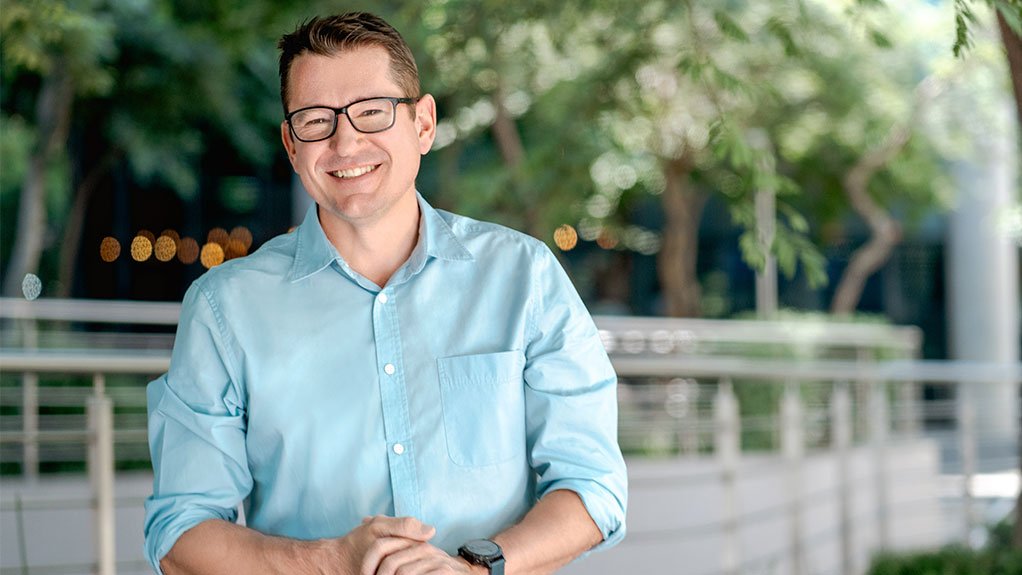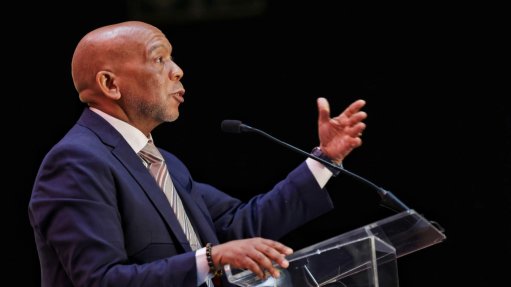The central role of South Africa’s rail network


Mark Evans is a partner at the strategic management consultancy firm Oliver Wyman
By Mark Evans
At a time of heightened demand, South Africa’s coal exports have fallen to their lowest levels in decades due to the collapse of rail corridors. As coal freight spills onto roads, heavy trucks are wrecking infrastructure never built for such loads. These failures are not only choking the smooth flow of goods, but are draining billions from the economy each day, leaving mines, exporters and communities to absorb the costs of crumbling systems.
On the Northern Corridor alone, which links coal producers to Richards Bay, Transnet needs R13 billion simply to restore basic functionality. Over the next five years, that bill climbs to around R65 billion. With no funds to cover the shortfall, Transnet has turned to the market. In March this year, the Department of Transport issued a request for information to test market appetite for private participation in freight rail and ports. The first focus areas are three national corridors: coal to Richards Bay, iron ore to Saldanha, and container traffic to Durban. Requests for proposals are expected to be phased over the next year, with further processes likely for manganese and even passenger services.
The government has already had to backstop the operator, approving a R51 billion guarantee facility in May: (R41 billion for funding needs over the next two years and R10 billion for liquidity), less than two years after a R47 billion lifeline – and since then, a further R94.8 billion in guarantees has been added. These may buy time, but they won’t fix the system.
It’s clear that Transnet cannot rehabilitate its own network, nor can the state underwrite its losses indefinitely. Without private capital and operational input, the country’s core transport infrastructure will continue sliding into disrepair.
Why private involvement is unavoidable
With freight rail volumes down by nearly a third since 2019, costs are climbing on every front. In the 2024/25 financial year, Transnet might have reported a net loss of R1.9 billion – a sharp improvement from the R7.3 billion loss in the previous year – but exporters are footing the bill through higher transport costs, lost sales, and reputational damage as freight shifts to costly road haulage, manufacturers face unreliable supply, and overloaded roads continue to fall apart. For a mining sector still central to South Africa’s balance of payments, the collapse of rail capacity is existential – damaging not only the public purse but private operators and investors too.
Private capital can’t afford to stay on the sidelines: it is already paying the price, and only private investors have the means to finance rehabilitation, co-manage operations, and restore confidence in long-term logistics. For freight users, getting involved is an act of self-preservation. Reliable rail lowers costs, ensures predictable deliveries, and strengthens competitiveness in global markets.
Lessons from abroad
South Africa is not the first country to face this dilemma. International precedents show that when governments bring in private partners, share risks fairly, and enforce transparent performance, rail networks can be rebuilt and confidence restored.
In Mexico, where 63% of freight moves by rail – dominated by coal, minerals, agricultural goods and oil derivatives – success came through dedicated commodity corridors run on concession models.
By contrast, South Africa has no such corridors, yet. Rail lines are general-purpose, under-maintained, and lack the focused investment needed to support bulk exports. The result is chronic underperformance.
Yet the country has proved it can make public-private partnerships (PPPs) work. The N4 toll route between Pretoria and Maputo remains one of the continent’s most important templates for successful PPPs. Structured as a 30-year concession, it was sub-Saharan Africa’s first large-scale cross-border transport PPP, which was successful because government commitments were firm, risk allocation was clear, and local business got involved.
In Nigeria, the Azura-Edo power project showed how even a high-risk environment can attract private capital when contracts are enforceable and guarantees are in place. A group of development finance institutions and private lenders backed the venture, which now supplies electricity to more than 10 million people. That transaction is widely seen as having reset investor confidence in Nigerian energy.
These cases underscore the point that investors will come if the rules are in place, the obligations clear, and the returns predictable. Without these conditions, investors will stay away.
Unlocking investment
The next phase of Transnet’s turnaround will be guided by how private participation works practically. The government has made clear that ownership of the rail network will remain public. What is up for discussion is operational control and capital participation. That requires flexible models: from track upgrades and terminal development to end-to-end corridor concessions.
What matters is alignment. A corridor cannot function if investment is piecemeal. Track, signalling, rolling stock, and terminal capacity must all work together. That means consortiums are more likely than individual players. Miners, funders, equipment manufacturers, and logistics specialists each bring something different to the table.
For investors, the return is not only financial, it is also operational, because it means predictability, cost control, and influence over the infrastructure that underpins their own businesses. Reliability itself is a dividend.
Private involvement, however, must be structured in such a way as to ensure that efficiency gains do not come at the cost of accessibility or affordability. South Africa cannot afford to repeat models that serve investors while excluding communities or raising barriers for smaller operators.
This means contracts must build in obligations for open access and fair tariffs. Corridors cannot become exclusive highways for a single set of players. International experience shows that balancing investor certainty with wider access is possible, but only if regulators have the authority and capacity to enforce the rules consistently, set fair prices, and hold operators accountable for full transparency.
Sustainability also needs to extend beyond finance. A functional rail system reduces road congestion, cuts emissions, and improves safety. These public goods matter as much as the revenue flows.
Opportunities on the table
The immediate focus will be on the three freight corridors already flagged, but opportunities extend well beyond them. Manganese exports are also constrained by bottlenecks, despite strong demand. Container traffic to Durban is chronically inefficient. And passenger rail, while politically sensitive, cannot be excluded from the long-term picture if South Africa is to reduce urban congestion.
Each of these areas offers room for private participation, whether through direct investment, joint operations, or service contracts. The test will be whether frameworks are flexible enough to attract different types of partners while still ensuring corridor-wide coherence.
The road ahead
Decisions taken in the next year will be key. The RFP will need to be more than a procurement exercise; it will be a chance to redesign national logistics. Investors and operators should be preparing now: studying the corridors, understanding the regulatory changes, and assessing where their interests align with the broader need for system-wide renewal.
What’s at stake goes far beyond freight volumes. Rail failures erode the competitiveness of mining, push up manufacturing costs, weaken exports, and ultimately hold back South Africa’s growth.
The government has made a significant concession by acknowledging that it cannot do this alone. That opens the door for private capital, but the window will not stay open indefinitely. If partnerships are not formed and funded soon, the situation will worsen; the longer the delay, the higher the cost of recovery.
South Africa cannot afford to stay on the back foot. Either the rail system’s decline continues – dragging down mining, manufacturing and exports – or private capital steps in to fix and rebuild what the government cannot. The choice will determine not just the future of logistics, but the trajectory of the economy itself.
Mark Evans is a partner at the strategic management consultancy firm Oliver Wyman
Article Enquiry
Email Article
Save Article
Feedback
To advertise email advertising@creamermedia.co.za or click here
Announcements
What's On
Subscribe to improve your user experience...
Option 1 (equivalent of R125 a month):
Receive a weekly copy of Creamer Media's Engineering News & Mining Weekly magazine
(print copy for those in South Africa and e-magazine for those outside of South Africa)
Receive daily email newsletters
Access to full search results
Access archive of magazine back copies
Access to Projects in Progress
Access to ONE Research Report of your choice in PDF format
Option 2 (equivalent of R375 a month):
All benefits from Option 1
PLUS
Access to Creamer Media's Research Channel Africa for ALL Research Reports, in PDF format, on various industrial and mining sectors
including Electricity; Water; Energy Transition; Hydrogen; Roads, Rail and Ports; Coal; Gold; Platinum; Battery Metals; etc.
Already a subscriber?
Forgotten your password?
Receive weekly copy of Creamer Media's Engineering News & Mining Weekly magazine (print copy for those in South Africa and e-magazine for those outside of South Africa)
➕
Recieve daily email newsletters
➕
Access to full search results
➕
Access archive of magazine back copies
➕
Access to Projects in Progress
➕
Access to ONE Research Report of your choice in PDF format
RESEARCH CHANNEL AFRICA
R4500 (equivalent of R375 a month)
SUBSCRIBEAll benefits from Option 1
➕
Access to Creamer Media's Research Channel Africa for ALL Research Reports on various industrial and mining sectors, in PDF format, including on:
Electricity
➕
Water
➕
Energy Transition
➕
Hydrogen
➕
Roads, Rail and Ports
➕
Coal
➕
Gold
➕
Platinum
➕
Battery Metals
➕
etc.
Receive all benefits from Option 1 or Option 2 delivered to numerous people at your company
➕
Multiple User names and Passwords for simultaneous log-ins
➕
Intranet integration access to all in your organisation

















